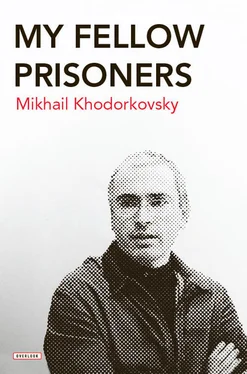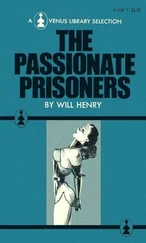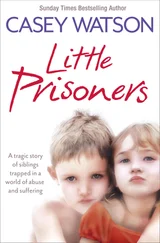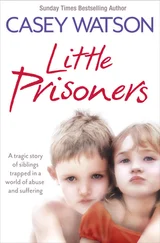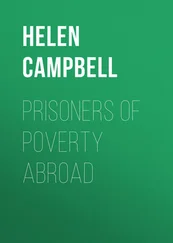Mikhail Khodorkovsky
MY FELLOW PRISONERS
Mikhail Khodorkovsky was Russia’s leading businessman and an outspoken Kremlin critic. Born in 1963 in Moscow, he founded one of Russia’s first private banks, Menatep. Group Menatep subsequently acquired a majority interest in the Yukos Oil Company. Under Khodorkovsky’s leadership, Yukos revived the Russian oil industry, becoming one of the largest oil companies in the country, and the most transparent. He began sponsoring programmes supporting civil society through the Open Russia Foundation, funded several opposition parties and publicly challenged the Kremlin on the issue of corruption.
When he was arrested at gunpoint in 2003 he became Russia’s most famous political prisoner. In 2005, Khodorkovsky and his business partner Platon Lebedev were convicted on fraud and tax evasion charges, sentenced to ten years and sent to Siberian penal colonies. Yukos was forced into bankruptcy and its assets were appropriated by a state oil company. Before becoming eligible for early release, new embezzlement charges emerged. Despite the fact that the charges contradicted those of the first trial, Khodorkovsky was put on trial again, and, in December 2010, sentenced to fourteen years in prison. The trials were heavily criticized by the international community. Intellectuals such as Elie Wiesel began to campaign for his release. Amnesty International declared Khodorkovsky and Lebedev prisoners of conscience, ‘trapped in a judicial vortex that answers to political not legal considerations’.
While imprisoned, Khodorkovsky fought for the rights of his fellow prisoners, going on hunger strike four times. Despite risks to his own safety, Khodorkovsky continued to speak out and write extensively about both the injustices he saw around him and his vision for Russia. He was pardoned on 20 December 2013 and, upon his release, vowed to continue fighting for prisoners’ rights.
or
How I wanted to write about my impressions of a classical music concert
There were many times in prison, and later in the camp, and then again in prison, and then again in the camp, when I really wanted to listen to a live performance of classical music. Somehow it just never happened; life was a bit crazy, I suppose; there was a lot going on. I also yearned for a situation where I could read, and discuss what I had read with someone – a real person – instead of having to converse much of the time with a sheet of paper. And now it seems I have absolutely no desire to write about that other life of mine, the prison life.
But a pertinacious editor has asked me to write a foreword to a book that was created in conditions far removed from those in which I find myself today.
This has not proved the easiest of tasks, because, when reading through what I’ve written over the previous ten or more years that I was in prison, I involuntarily find myself re-experiencing that life over and over again, a life that once seemed as though it would go on for ever.
On 25 October 2003, the day of my arrest, it would never have occurred to me that details of what I remembered, even the most trivial and mundane, would be of interest to anyone. So, I survived – what more is there to say? Besides, as an out-and-out technocrat, not in the least oriented on the humanities, I had always regarded reading as primarily an essential tool for obtaining the information I needed, or for forcing myself to think about something. In fact, even now, hand on heart, I can honestly say to myself: well what kind of writer are you, anyway?!
Do I remember the details of my arrest? Not particularly. Or, rather, I do remember that I was thinking about something completely different from what all the wonderful books they give us to read in school say you should be thinking in such a situation.
I remember I didn’t feel anger; I was too stubborn for that. Though it wasn’t a question of stubbornness either. Confusion, a sense of uncertainty – these are entirely alien feelings for me.
I was thinking about my parents, my wife, my children. I was trying to figure out what would happen to the company. I was definitely thinking about how there might be interrogations using psychotropic drugs, as had happened to my colleague Alexei Pichugin – how they would slip something into my food, do a video recording. Which is why at first I tried not to eat, and to drink very carefully, although I wasn’t frightened – this I can say for sure…
It is a strange and wonderful feeling to be able to type out letters and words on a computer, and abandon the habit of jotting things down on little pieces of paper at odd moments of the day or night.
I was often asked – and continue to be asked – how many times a day, week, month or year I had the opportunity to use the internet, a computer, and other such blessings of technological progress. Well, I’ll tell you: for over ten years I never once had such an opportunity! Some of today’s opposition leaders were genuinely amazed at how well informed I was in our correspondence; they refused to believe that I didn’t have a computer or internet access in my cell. And they continued to be amazed, right up until that moment when they themselves ended up in a cell for a couple of weeks – then they understood…
What you are now holding in your hands is an attempt to show a world that is beyond the comprehension of most people – a world from the past, in which some live in comfort and others do not; a world that coexists in my country with the real world, but where it’s as though technological progress and the achievements of civilization have never happened. But everybody in Russia – irrespective of whether they have read Solzhenitsyn and Shalamov or have no idea who these great writers are – knows almost on a genetic level, deep in the subcortex of their brains, the saying ot sumy da ot tyurmy ne zarekaisya : you can’t prevail over begging bowl or jail.
Relying on the internal discipline that my parents had instilled in me since childhood, not allowing myself to think about getting out anytime soon, I kept my mind occupied by writing numerous letters and engaging in intellectual disputes with distant opponents. And I wrote prison stories. About the things I saw myself or had learned about from others, things that can happen to anybody. I wrote about the country in which our remarkable people continue to live in penury and without rights. And I wrote about a future Russia that we will be able to feel proud of without a trace of shame – the Russia that will ultimately take the road of European civilization. A road we all share.
It’s well known that prison is a place where you encounter the most unusual people. Over these past years a great swathe of humanity, with fascinating stories to tell, has crossed my path.
The feeling of wasted lives being thrown on the dust-heap is often overpowering. Human destinies ravaged, whether by themselves or by the soul-destroying system. I’m going to try to tell you about a few of these people and their situations. I have inevitably changed names and some details, given the circumstances of the people I’m writing about, but the essence of their characters and the situations they find themselves in are kept as I heard and perceived them myself.
After so long in prison I certainly have no illusions about the people I have come across. Nonetheless, many prisoners have their principles. Are they valid ones from society’s point of view? Some are, some aren’t. But they are principles, all the same, for which people are prepared to suffer. Really suffer.
Читать дальше
